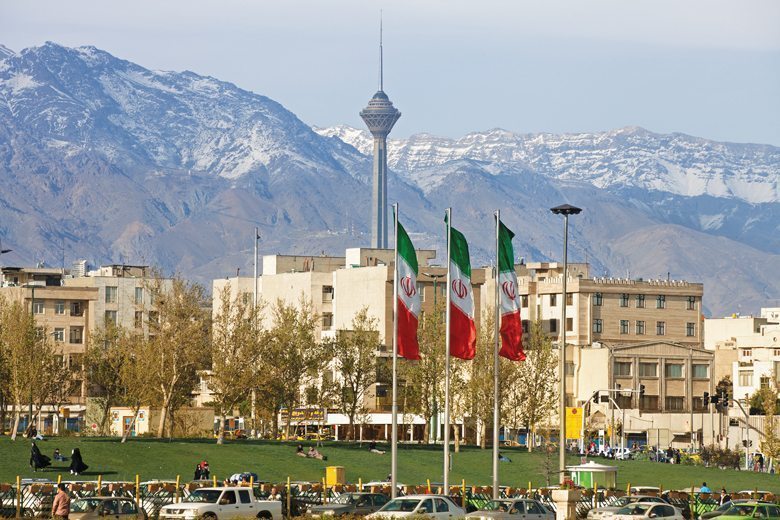

Shift in parliament could provide mandate needed to push through Iranian Petroleum Contract in coming months
Irans oil production and exports have surged since the lifting of nuclear-related sanctions against the Middle Eastern country in January, with exports doubling year-on-year in June.
Exports reached close to a four-and-a-half-year high in June as production rises towards pre-sanctions levels, but, so far, there has been very little in the way of long-term international investments into Irans oil sector.
International oil companies (IOCs) eyeing investments in the Islamic Republics oil and gas fields continue to wait for the terms of the Iranian Petroleum Contract (IPC) a new model designed to improve terms for overseas firms.
Minister of Petroleum Bijan Zanganeh, who has been working on the contract model for almost three years, said in an interview published on 11 June by Seda Weekly that the first deal with a foreign company will be signed within three months, but that the ministry is still making revisions to the IPC.
Zanganeh revealed in Tehran in November that the authority was looking for international partners to develop 52 oil and gas fields in contracts lasting 15-20 years. This was due to be followed up by a conference in London at the start of 2016. However, the conference was cancelled, with no clear proposed date for the launch of the IPC announced since.
The terms of the IPC are a contentious issue within Irans political establishment, with hardline conservative factions seeking to block any model that relinquishes too much control of oil reserves to overseas companies.
However, the results of the parliamentary elections in February and April appear to have increased the mandate of President Hassan Rouhanis government to push through the legislation.
The elections marked a shift in power in Irans Majlis, with many hardline MPs replaced by moderate reformists loyal to the president.
In the previous parliament a lot of the members were against the government and at that time if they had pushed the IPC forward it would have been very tough to get it approved, says Homayoun Falakshahi, research analyst at UK-based consultancy Wood McKenzie.
The new parliament that was elected in February and the second round in April, and apparently would be more supportive of Rouhanis reforms, although it doesnt mean it will be 100 per cent approved. It will still be a tough process, he added.
Iranian companies have signed a number of memorandums of understanding (MoU) with various European and Asian companies on major oil and gas projects since sanctions were lifted in January.
These agreements have largely tied in with meetings between Iranian politicians and their foreign counterparts but have so far largely remain early-stage, non-binding deals.
Perhaps the most significant agreement is the renegotiation of agreements with Chinese companies to develop the North Azadegan and Yadaravan fields. In May the Iranian Mehr News Agency reported that Sinopec and China National Petroleum Corporation (CNPC) had signed new agreements to carry out the projects.
Sinopec and CNPC had already worked on the early phases of developments at the North Azadegan and Yadaravan fields through the buy-back contract model but the projects faced significant delays.
These contracts were not linked to the IPC contract model currently being revised and are likely based on the buy-back model used to deal with overseas investors in the 1990s and 2000s. South Azadegan, another major onshore development that was being carried out by CNPC, is set to be tendered under the IPC.
CNPC and Sinopec awards are not surprising because they are just an extension of the current [buy-back] contracts, said Falakshahi. I think these agreements have a lot to do with political ties with China I suspect with these announcements come agreements on crude sales to China.
China is already Irans biggest customer shipping over 600,000 barrels a day (b/d) of crude in recent months and Tehran is keen to secure China as a long-term reliant buyer.
Falakshahi expects European oil companies to compete strongly when the IPC is eventually launched, particularly groups that have a legacy of working in Iran.
Larger IOCs such as UK-Dutch Shell, Frances Total, and Italy-based Eni which have all worked in Iran in the last 20 years have the technological capability and capacity to work across several different types of projects. Mid-caps such as Austrias OMV and Danish group Maersk could target specific projects that fit their strengths and specialties.
There is also likely to be interest from Russian energy giants such as Gazprom, Lukoil and Rosneft.
Iranian crude and condensate exports have doubled in the last year to 2.3 million b/d, the highest since January 2012 before international sanctions were introduced against exports. Opec estimates, based on secondary sources, put Iranian crude production at 3.56 million b/d in May compared with an average of 2.84 million b/d in 2015.
The speed of Irans recovery has beaten the forecasts of many analysts but could be reaching its limit without major investments in oil and gas production and export infrastructure.
The completion and launch of the IPC in the coming months will be crucial to securing the governments ambition to become one of the worlds top oil producers in the next decade.
You might also like...

Red Sea Global awards Marina hotel infrastructure
18 April 2024

Aramco allows more time to revise MGS package bids
18 April 2024

Morocco tenders high-speed rail project
18 April 2024
A MEED Subscription...
Subscribe or upgrade your current MEED.com package to support your strategic planning with the MENA region’s best source of business information. Proceed to our online shop below to find out more about the features in each package.





